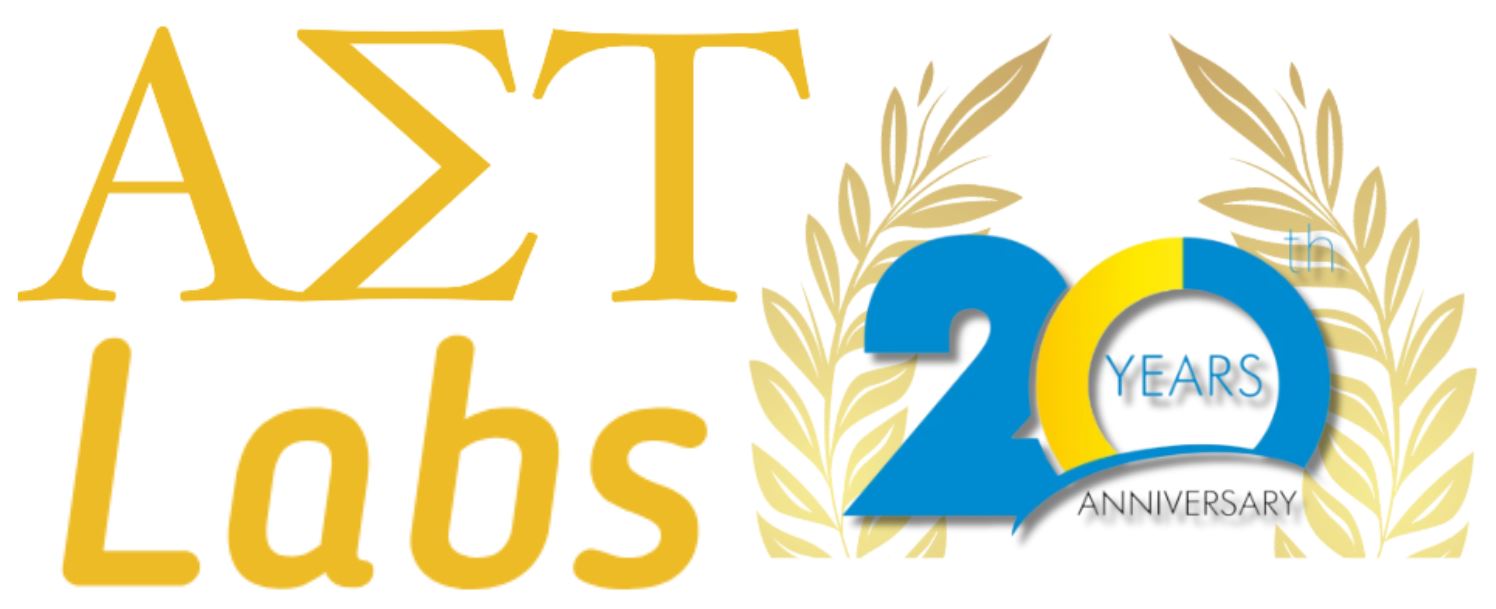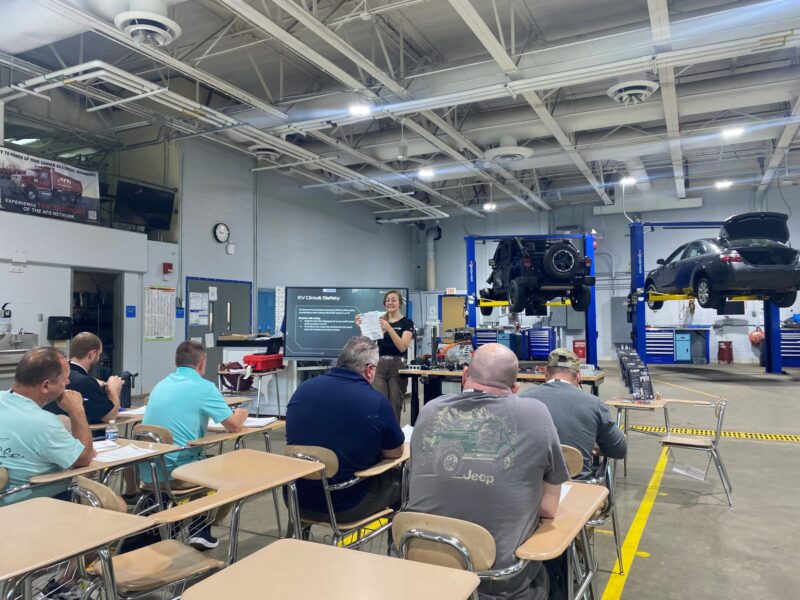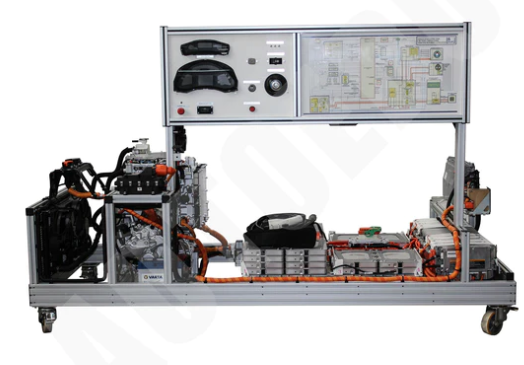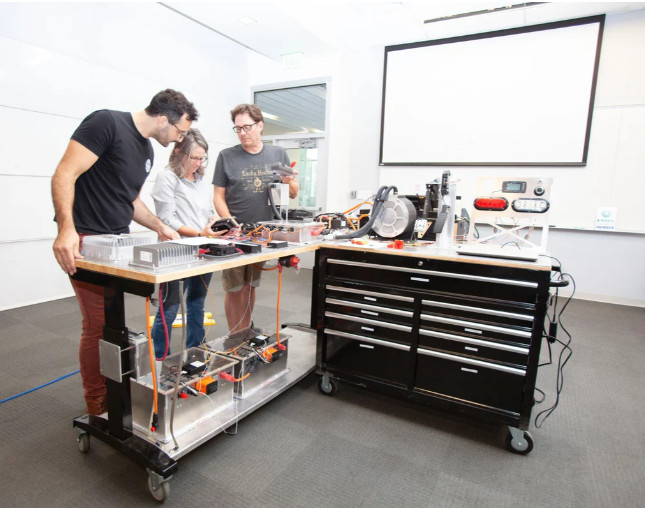New England is a national hotspot for EV adoption, with nearly three million new hybrids and fully electric vehicles expected to enter service by 2033. States like Vermont are investing heavily in infrastructure, and the Northeast boasts a dense network of active and developing charging corridors.
That means EV technicians will be in high demand, and community colleges and CTE programs are scrambling to develop certifications and coursework to meet it.
But what goes into a program that safely provides the skills that tomorrow’s EV technicians will need? How are classrooms creating engaging experiences that attract aspiring professionals to this lucrative field?
At AET Labs, we’ve been working closely with CTE programs across New England to equip them with the most exciting EV training technology on the market. Here’s a look at the future of the EV industry for aspiring technicians and the top training tools for auto shops.
Surging EV Popularity in New England
With short distances between major cities and a relatively small geographical footprint, New England is a prime location for electric vehicle usage. Vermont, Massachusetts, and Connecticut all rank in the top 15 for EV and hybrid registration per 100,000 residents, and represent three of the top four states for charging infrastructure density.
Officials are also taking a close look at investments in rural areas like New Hampshire’s White Mountains, with $2.8 million in federal grants from the National Electric Vehicle Initiative (NEVI) supporting a multiphase rapid charger initiative.
Rising EV Training Standards
While EVs are undoubtedly contributing to a greener future, they present a number of challenges for technicians. New certifications are evolving all the time, and guidelines like the Massachusetts Automotive Technician CTE framework now include teaching Automotive Technology students EV and hybrid systems.
In response, programs across the Northeast are being founded to take advantage of the rising trend in EV technical training. Southern Maine Community College opened the state’s first EV repair certification class in 2024, and Massachusetts offers grants to develop the clean energy workforce through the Massachusetts Clean Energy Center.
However, that doesn’t mean that EV technology blends seamlessly with the classroom environment—EVs utilize high-voltage electrical systems and corrosive chemicals. Automotive instructors at CTE high schools and community colleges need training tools that provide real-world experience for students while also being safe, highly approachable, and engaging to use.
How are the top programs overcoming these challenges? Here are some of the best EV and hybrid training products in the industry today.
1. AutoEDU Electric Vehicle Trainer
High-voltage systems can expose learners to electrocution risks if they aren’t designed with hands-on training in mind. However, low-voltage or virtual systems don’t provide the look and feel technicians will encounter in the field.
AutoEDU’s Electric Vehicle Trainer delivers a high-voltage training platform that’s been carefully developed to be both approachable and highly instructive. This system gives students an up-close experience of key EV components, including:
- Electric motors
- Electric controllers
- Batteries
- Air conditioner compressors
These components are connected with high-voltage cables but protected by plexiglass to ensure maximum safety and learnability for students of all experience levels.
2. Legacy EV Electric Vehicle Training Bench
The EV Training Bench gives auto shops a complete platform for courses in EV maintenance, conversion, and advanced maintenance certification. It supports curriculum for high-voltage safety, diagnostics, and powertrain integration with real-world training that aligns with EV technician standards.
The 100V Training Bench provides a full EV powertrain brand-agnostic technology that allows learners to wire, diagnose, and program an EV while practicing high-voltage safety procedures.
3. Toyota Prius Hybrid Half
There’s no substitute for real-world experience, but bringing a full vehicle into the classroom is often an expensive solution, especially for hybrids and EVs. Learners typically won’t need to access unnecessary systems as part of the curriculum, making the rear half of these vehicles a bulky and impractical classroom presence.
The Toyota Prius II Hybrid Half delivers a believable framework that emphasizes essential EV components. The fully functional front end gives users a complete petrol/hybrid system, including an automatic gearbox, climate control, CAN Gateway network, exhaust system, and SRS airbags.
With a built-in OBD 16-pin diagnostic connector, students gain proficiency with:
- Electronic control unit (ECU) identification
- Reading/erasing fault codes
- Displaying the operating system parameters (live data)
- Control unit coding/configuration
Developing Tomorrow’s EV Workforce with AET Labs
EVs are going to continue to define the automotive landscape in New England, and AET Labs is helping community colleges and high school CTE programs keep pace with the best classroom technology available. We offer end-to-end lab solutions, including grant application assistance, to connect our clients with resources that meet the highest certification standards and prepare students for valuable careers in critical industries like EV and hybrid maintenance.
Contact AET Labs to speak to one of our consultants about how to design and outfit your shop with the technology and tools to prepare tomorrow’s workforce.





